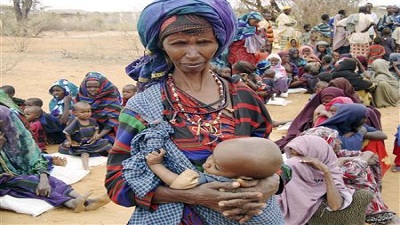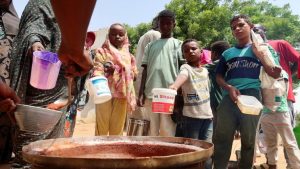Thousands of malnourished Somali women and children are fleeing into Ethiopia to escape Islamist militants who are taxing them and seizing their food, animals and land, says the United Nations amid fears of renewed famine.
Arrivals into Ethiopia’s Dollo Ado camp from Somalia surged in January to more than 100 a day, said the UN’s refugee agency, UNHCR, the highest number seen in four years.
“They report being taxed heavily by al Shabaab,” said Clementine Awu Nkweta-Salami, UNHCR’s country representative in Ethiopia, referring to the Somali militant group. “In some cases they also report they have had their land confiscated as well as crops and livestock.”
The United Nations has issued a pre-famine alert, with 6.2 million of Somalia’s 10 million people needing emergency aid due to conflict and drought. Al Shabaab, which has been fighting Somalia’s Western-backed government for a decade, partially controls Bay and Bakool regions where most of the new arrivals come from.
“No one from the areas under the control of the Mujahideen has gone to Ethiopia,” an al Shabaab spokesperson said.
“That is a complete fabrication and a political manoeuvre by the UNHCR in order to solicit for donations and secure funds from unsuspecting donors by appealing to their emotions.”
Few international agencies work in al Shabaab controlled areas, relying on local charities to deliver aid for them.
“The real question is going to be whether (humanitarians)are going to be able to get enough food and water into those communities in time to prevent a mass exodus,” said Charlie Mason, Save the Children’s humanitarian director.
A lack of access to food aid was one of the main reasons 260 000 people died in Somalia’s 2011 famine.
The United Nations hopes it will have better access than in 2011 as African Union forces have pushed al Shabaab out of the Somali capital, Mogadishu, and other southern strongholds.
“We (now) have the ability to mount operations that can help stabilise rural areas before they fall into famine conditions,” Justin Brady, head of the UN’s Office for the Coordination for Humanitarian Affairs (OCHA) told a news conference on Thursday.
– By REUTERS






